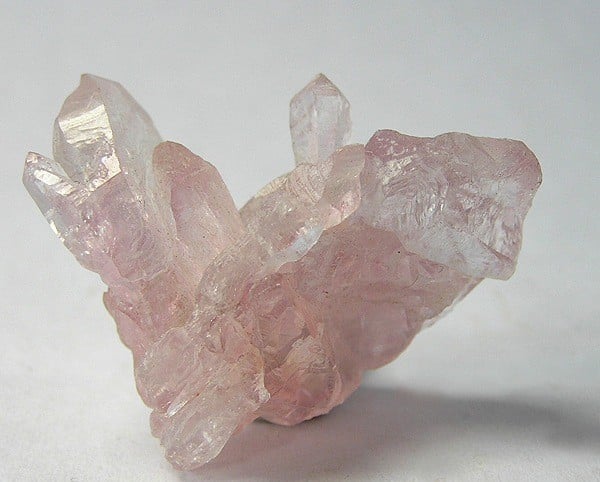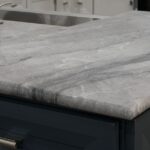Quartz is amongst the most reliable options of stone you can use for your interior design. Being an engineered, man made, stone, it is designed to be extremely resistant and easy to maintain. Even so, there are some things you shouldn’t do with your quartz countertop. So what are these things exactly, and what are the dos and don’ts when dealing with quartz countertops maintenance?
To understand these dos and don’ts, you first have to know a little about quartz. So we will start by talking about what exactly is quartz and how it is made. Following that, we will present you the dos and don’ts of its maintenance.
Quartz Countertops dos and don’ts: What is quartz?
How to know how to best take care of something without first understanding what that thing is, right? That’s why we will take some time to talk about what quartz actually is.
For starters, even though it looks like, quartz is not a natural stone. Let’s be clear, quartz is a real mineral, a simple one that be found basically anywhere. But that final “stone like” product that we call quartz is not composed entirely of it.
Quartz, in its natural form, looks like a crystal. The process of fabrication of a quartz slab consists in crushing several of those crystals in combination with other forms of highly resistant stone and bonding resigns.

What you are left with is a mix of products that is up to 93% composed of quartz crystals. This mixture, with the addition of any coloring agents, is then put in a vacuum chamber. In that chamber the slab is heated up to extremely high temperatures.
The combination of vacuum plus extreme heat forms an incredibly durable slab of stone. That slab is polished, finished, and then sold to the public.
Quartz Sealing: Is it necessary?
Before skipping to the actual cleaning part, let’s first take some time to expand on what is considered by many the “first step” in the maintenance of countertops: the sealing.
Sealing is, in fact, a very important step that should never be overlooked. Stone can be very expensive, and for your investment to be worth, you want it to last as much time as possible. Sealing is indeed the first step to make sure that happens.
When a material is porous, liquids can seep into it. That can leave permanent stains and compromise the integrity of the material itself. So whenever you’re dealing with a porous material, sealing is a must to ensure it lasts longer and that any future maintenance steps are going to be easier and more effective.
But do you need to seal quartz? No, you don’t.
The bonding resign used in its fabrication process makes sure the final quartz slab is already non-porous and, therefore, it doesn’t need to be sealed.
See how important it was to know how quartz is made?
Dos and Don’ts of Quartz Countertops
So let’s finally talk about what you should and should not do with and around your quartz countertops.
Dos
- Dry up spills immediately using a paper towel. Just because quartz isn’t porous, that doesn’t mean it will not stain if you let liquids like coffee or wine dry into it.
- Te day to day cleaning of your quartz countertop, a mild dish soap with warm water is already more than enough.
- Most common household cleaners, as long as they are not abrasive, are safe to use on quartz.
- Use a soft non-scratch sponge to clean up any hard residues from it.
- Around quartz, coasters and cutting boards are a must. Use them at all times.
- For the most difficult and greasy stains, spray the area with a degreasing cleaner and leave it rest for about 10 minutes before wiping it away with a clean cloth.
- Spray glass cleaner is a very good product to leave your countertop shinning.
Don’ts
- Never use any form of abrasive cleaner, powders or hard scrubs on your quartz. They can all scratch the surface. Spills should ideally be cleaned immediately.
- Never use metal knives or anything of the sort to remove hardened substances from quartz. That can do irreparable damage.
- Never slice anything directly on top of quartz. Again, even tough it is very resistance, the surface of quartz can be scratched by mechanical force. Also, cutting directly on quartz is a recipe for staining it with the substances coming directly from the food.
- Never set hot pans directly on quartz. Heat is one of the few true weaknesses of quartz, so any hot material should never get near it unless there is a reliable trivet between them.
- Acidic and alkaline products should never be used on quartz. High pH products can easily damage quartz, so stay clear of that. A good rule of thumb to follow is that if you’re not sure a cleaning product is safe for quartz, don’t use it.
Quartz Countertop Installation and Maintenance
If you follow the dos and don’ts during quartz maintenance, it can last for years and years without ever losing its value. Cleaning it every day with simple products is a must to avoid having to deal with more difficult stains.
Quartz is not a demanding stone. As long as you keep it clear of acidic and alkaline products, don’t cut anything directly on top of it and take care with hot pans around it, it will serve you very well on your kitchen area, indoors and outdoors.
In the worst-case scenario, professionals can always tell you what to do and point you in the right direction. Here at Eagle Stones, we are proud to say we work with the best professionals in the area when it comes to the installation and maintenance of stone products.
Give us a call anytime at +1 941-227-2000 or reach through our email at sales@eaglestonesusa.com to schedule a free visit of one of our professionals.



